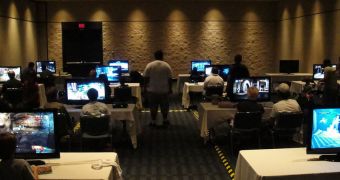According to the conclusions of a new scientific investigation by researchers at the Oxford University, it would appear that playing video games may help reduce the severity of symptoms in children suffering from attention and learning disabilities, including dyslexia.
The team says that more and more evidences appear to suggest that dyslexia is more likely an attention-related disorder than anything else. As such, parents should encourage their children to play more if they have dyslexia, even though their natural feelings would be to send them to play outside.
This condition is fairly common within the general population according to statistics, affecting anywhere from 5 to 10 percent of all children. Sufferers experience difficulties in reading, especially when it comes to making out words and phonetic elements.
This is where video games come in. Past studies have demonstrated that they do wonders for boosting the human brain's attention system, so the Oxford team theorized that this positive effect would help reduce the severity of symptoms associated with dyslexia, NPR reports.
“These video games require you to respond very quickly, to shift attention to one part of the screen to another,” explains Oxford experimental psychologist Vanessa Harrar, who was also lead author of the new study. The work is detailed in the February 13 issue of the journal Current Biology,
“It's not just shifting attention from one location to another, but we should also be training shifting attention from sound to visual stimuli and vice versa,” adds the researcher, who is herself suffering from this condition. There is currently no widely-accepted explanation for what causes dyslexia.
One possible explanation for why video games appear to work in boosting attention is provided by University of California in Merced language and learning disabilities expert, Jeffrey Gilger.
“As human beings we prefer visual stimuli. When you're trying to listen to someone on TV and the sound doesn't match the mouth moving, it throws you off. You're trying to get the sound to align with the vision, not the vision with the sound,” says the scientist, who was not a part of the research.
The team acknowledges that a lot more work is needed to understand dyslexia. As such, a viable course of treatment for this condition is still a few years away.

 14 DAY TRIAL //
14 DAY TRIAL //